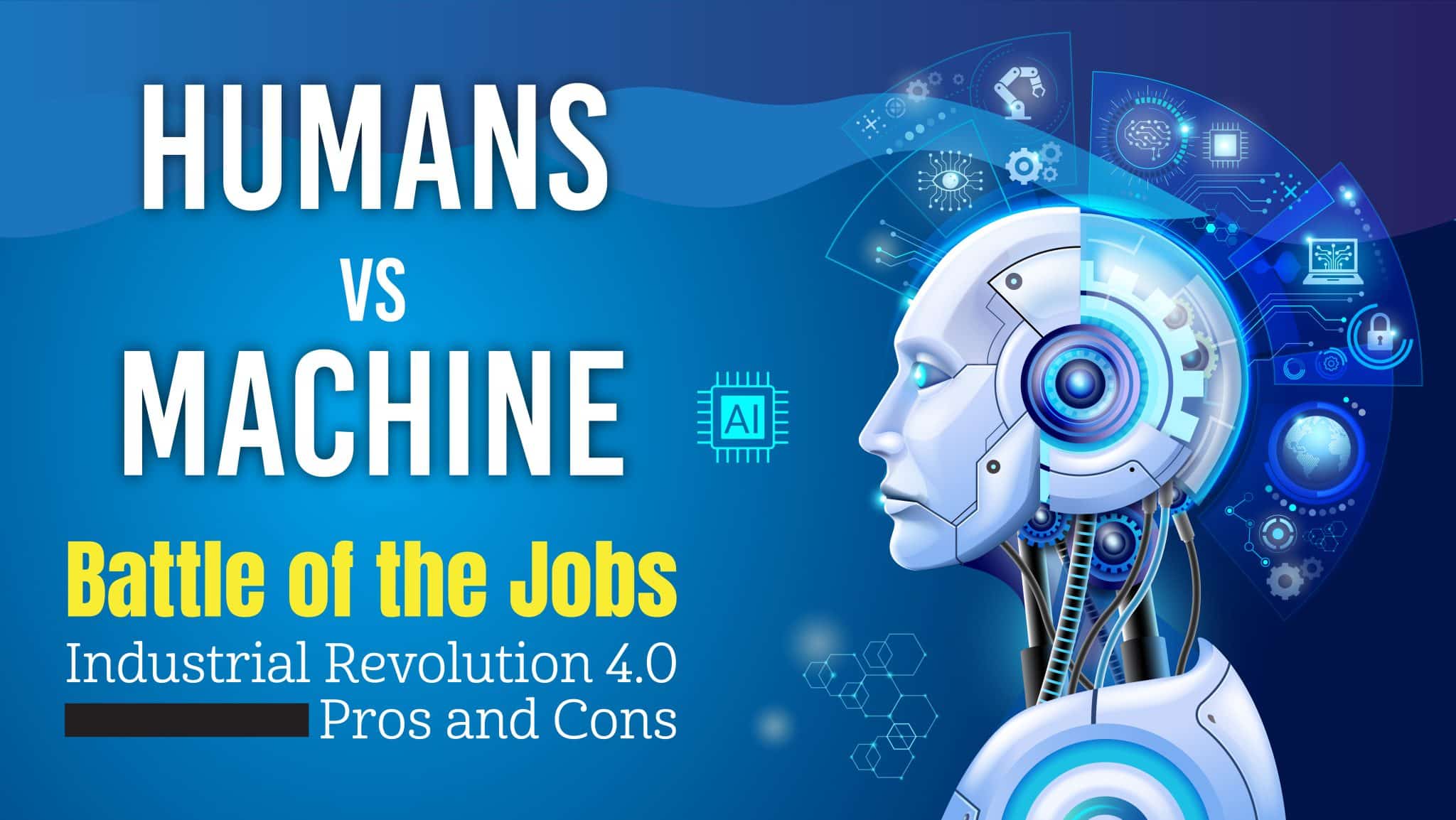BLOG
Humans Vs Machines Battle of the Jobs Industrial Revolution 4.0 Pros and Cons

Post the 18th century, machines started to take over the workforce, with much more consistency and perfection. Later in the early 1980s when the internet started to connect the world, we noticed significant changes in all the areas of work. Of course, it is a major development in the field of science and technology.
Gone are the days when you would walk into an airport and manually get a ticket from the attendant at the counter. Today, we have a kiosk that generates your ticket, saving you time and from restless people in the queue. Likewise, we also have digital bus passes that an app can develop for you. Not having to take a day off traveling to the bus depot and spending hours figuring out what to do excites all of us. What led humans to develop these technologies? Laziness or Smartness? That is for you to figure out. However, this must be the most significant revolution in human history – The Industrial Revolution 4.0.-a new era of machines ruling the world
Now what is Industrial Revolution 4.0?
Industry 4.0 is the new era of digitalization. It is the term that is used to describe the transition from an electronic-based industry to one that is dominated by the fusion of new and emerging fields and ideas like Artificial Intelligence, robotics, green energy, etc. In the latest news World Economic Forum has partnered to set up a center for the fourth Industrial Revolution in India.
Click here to learn more.
It is characterized by 4 physical and digital trends:
- Autonomous Motor Vehicle (cars, trucks, drones, aircraft, water vessels)
- 3D printing (medical implants)
- Advanced robotics (Agri to health care)
- New materials (graphene)
As we evolve and become a more digitized generation where the world is swiftly shifting to options that are easier, we must question the human relevance in the various industries. Are humans replaceable by machines? If so, are humans upscaling their skills enough to give the machines a tough fight? Let us try to break this down by the pros and cons of industrial revolution 4.0.
Pros:
- We will be able to improve operational performance and efficiency. We can produce a large quantity of products faster while deploying resources more cost-effectively and efficiently with fewer machine downtimes.
- As most of the production processes are automated, precision of work can be maintained at a lower manufacturing cost.
- Flexibility in enhancement, quick response to market demands, and sleight for launching new products and services. It is easier to scale production up or down in a smart factory with minimum modifications.
- Industry 4.0 technologies make it possible to automate compliance including track and trace, quality inspections, sterilization, data logging and so on.
Cons:
- A few entry-level impediments to industry 4.0 include technical malfunctions, the loss of high-paying positions, and stakeholder aversion to investing in modern technologies.
- Social difficulties and their impact on society. Earlier industrial revolutions ushered forth significant social transformations. A great deal of urbanization and industrialization took place. It is unclear how things will turn out this time around.
- Labor skill, education and training must be increased, and this will need a significant investment
- The connection between workers and machines has changed dramatically because of Industry 4.0. Machines’ roles in this new era extend beyond manual production processes: they are more important in manufacturing, resource planning, data collection and analysis, and logistics.
According to the 2018 Global Trends report released by LinkedIn, 76% of recruiters and hiring managers think that the 4th Industrial Revolution, or more specifically automation and AI, will have a significant impact on the recruitment industry. Keeping these pros and cons in mind, what experts suggest is that eventually humans and machines/robots are to co-exist in the workplace. A substantial portion of work will be taken over largely by the machines.
It is evidential that the life of human beings is becoming more comfortable with modern technology. Industrial revolution 4.0 could bring major changes in how we live, work, and communicate.
From the above piece of information one can clearly understand the intervention of machines into human life. Modern technology brings greater aspects of inventions and innovations to all areas of work. This may be beneficial in terms of creating recruitment, but to what extent only time can tell!


